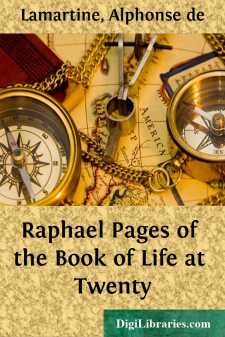Categories
- Antiques & Collectibles 13
- Architecture 36
- Art 48
- Bibles 22
- Biography & Autobiography 813
- Body, Mind & Spirit 142
- Business & Economics 28
- Children's Books 17
- Children's Fiction 14
- Computers 4
- Cooking 94
- Crafts & Hobbies 4
- Drama 346
- Education 46
- Family & Relationships 57
- Fiction 11829
- Games 19
- Gardening 17
- Health & Fitness 34
- History 1377
- House & Home 1
- Humor 147
- Juvenile Fiction 1873
- Juvenile Nonfiction 202
- Language Arts & Disciplines 88
- Law 16
- Literary Collections 686
- Literary Criticism 179
- Mathematics 13
- Medical 41
- Music 40
- Nature 179
- Non-Classifiable 1768
- Performing Arts 7
- Periodicals 1453
- Philosophy 64
- Photography 2
- Poetry 896
- Political Science 203
- Psychology 42
- Reference 154
- Religion 513
- Science 126
- Self-Help 84
- Social Science 81
- Sports & Recreation 34
- Study Aids 3
- Technology & Engineering 59
- Transportation 23
- Travel 463
- True Crime 29
Alphonse de Lamartine
Alphonse de Lamartine (1790–1869) was a prominent French poet, politician, and historian, known for his contributions to Romantic literature. He is best known for his poetry collection "Méditations poétiques" (1820), which marked a major turning point in French romanticism. Lamartine also played a significant political role, advocating for democratic reforms and briefly serving as a leader during the 1848 French Revolution. His historical work "Histoire des Girondins" (1847) influenced revolutionary movements in France.
Author's Books:
Sort by:
I. I now undertake to write the history of a small party of men who, cast by Providence into the very centre of the greatest drama of modern times, comprise in themselves the ideas, the passions, the faults, the virtues of their epoch, and whose life and political acts forming, as we may say, the nucleus of the French Revolution, perished by the same blow which crushed the destinies of their country....
more...
INTRODUCTION It is all very well for Lamartine to explain, in his original prologue, that the touching, fascinating and pathetic story of Raphael was the experience of another man. It is well known that these feeling pages are but transcripts of an episode of his own heart-history. That the tale is one of almost feminine sentimentality is due, in some measure, perhaps, to the fact that, during his...
more...



